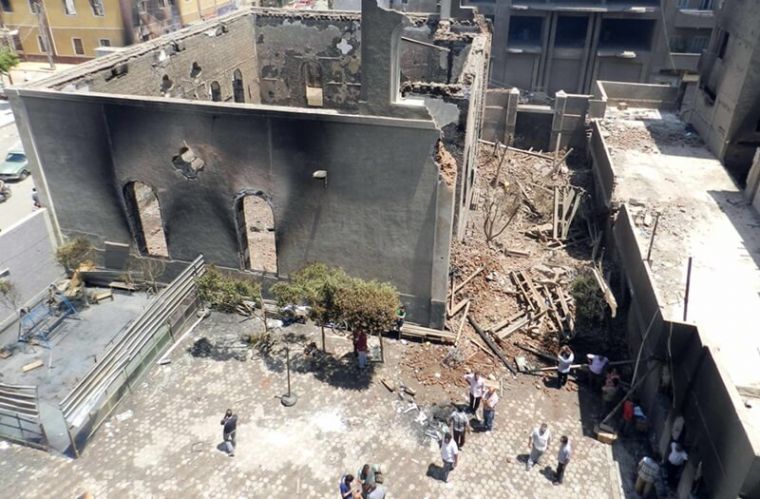Christians suffering from increasing and various forms of persecution worldwide

Persecution against Christians is on the rise worldwide—ranging from discrimination in Egypt, laws targeting Christians in Pakistan, repression in China, and arson attack in the Holy Land, The Guardian reported.
Mina Fayek grew up a Coptic Christian in Egypt, the largest Christian community in the Middle East and where football is a national sport. However, his interest in the game as well as his skills on the field have been limited by discrimination from a coach who said in an offhand remark that no Christians would join the first team or make it to the finals.
"My parents and I knew this is not going anywhere, and I had to choose another game," recalled Fayek, now a 26-year-old software engineer and blogger.
He also can never serve in the intelligence branch of the Egyptian military because of his religion. There are no Christians in the supreme council of the armed forces.
"It pushes you to feel disengaged from your country," Fayek said. "How could someone maintain his love for his country – and be passionate about building it – while at the same time he can't be whatever he wants to be, whether a military commander or a police commander."
Fayek believes his social status has protected him from the worst forms of persecution suffered by poorer Egyptian Christians.
In Pakistan, where Christians only make up less than 2 percent of the population as of 1998, Anthony Ibraz, a 31-year-old priest, has suffered along with his family because of their faith. Hard-line neighbours ordered his father to take off the cross he wore and beat him up for spreading God's Word. His brother was killed by an extortionist who wanted his family's property. He grew up being discriminated at school and by shopkeepers.
Pakistan's blasphemy laws are also used to target Christians by implicating them in questionable cases. There have been attacks by mobs on Christian neighbourhoods.
"Persecution is not [only] about the blasphemy law," said Ibraz at his parish office. "There are different kinds of persecution. There is discrimination, when we go out, in education and jobs ... sometimes slavery in Sindh and Punjab. There are people who come to us who say they are educated and capable but they don't get jobs. The reason is religion."
In China, Christianity has blossomed under persecution. When hundreds of student protesters were killed in the June 4 Tiananmen massacre, Pastor Xu Yonghai, who is now 55, and his friends converted to Christianity after witnessing the Communist party's brutality.
"It's like you finally realise that your old lover is evil and vicious, and then you meet a nice and kind new girl. How can you not love her?" said Xu, who got used to the police-installed CCTV cameras outside his house in Beijing to track his movements.
"It won't stop me practising Christianity," said the underground church leader, who has denounced the bulldozing of churches and assaults against preachers in China.
Although the freedom of belief is guaranteed in China's constitution, crosses of state-approved churches have been removed repeatedly from roofs in the Zhejiang province.
Last year, 13 members of Xu's 20-member congregation were detained for a month for participating in "illegal gatherings."
In Israel, the Church of the Multiplication on the shores of the Sea of Galilee was targeted by an arson attack last month allegedly by Jewish extremists.
In the newer annex, attackers painted graffiti on the wall calling for the "destruction of false idols" – included in a Jewish prayer, the Aleinu.
"They came in the middle of the night," said Father Matthias. "We're not sure if they came by boat or climbed over the wall. We think there must have been at least three of them because they lit the fire in two places while someone else painted on the wall."
Since December 2009, around 43 churches and mosques were burned or desecrated but authorities have not prosecuted even a single attacker, said the Council of Religious Institutions of the Holy Land.
"We are really angry. We feel as though not enough is being done by the authorities to find the people behind these attacks. We need to put it in perspective. We know this isn't Syria, where Christians are frightened for their lives, but what we are asking, as a first priority, is that they bring them to justice so no one else will be inspired to do this kind of thing."











